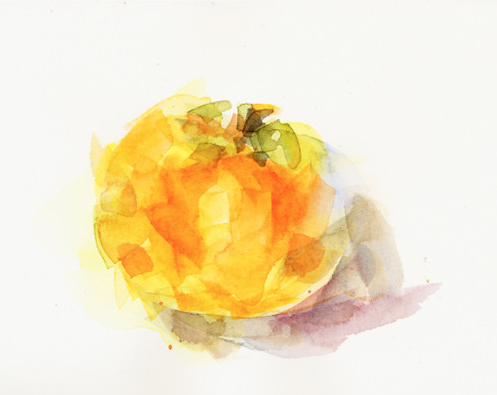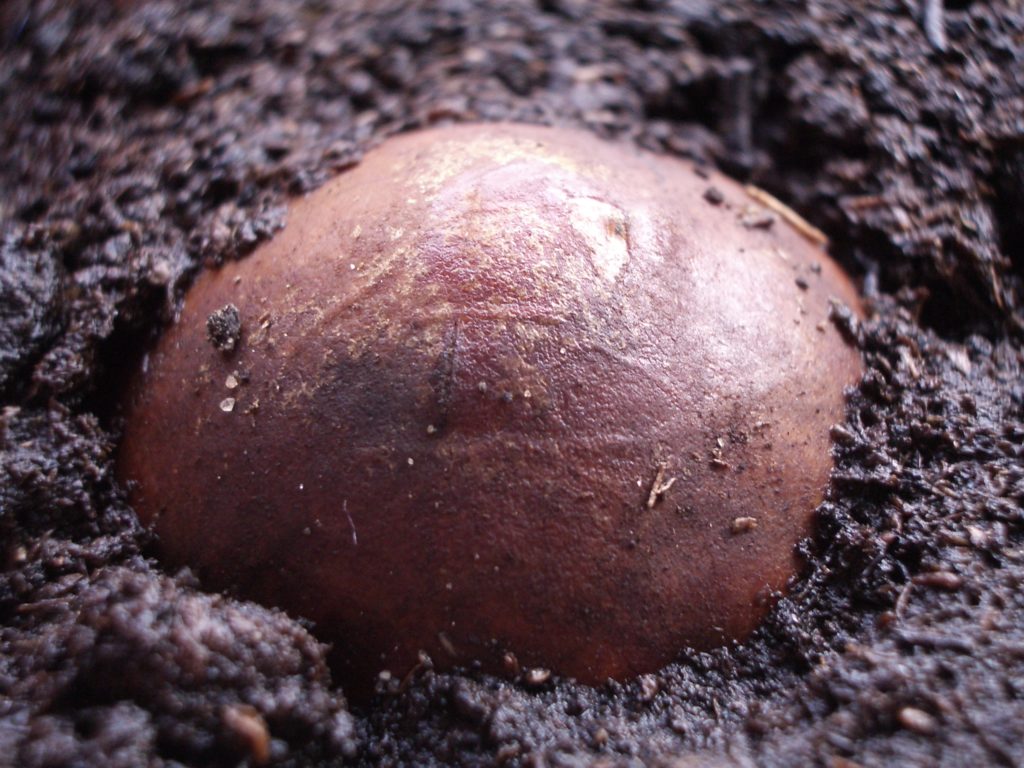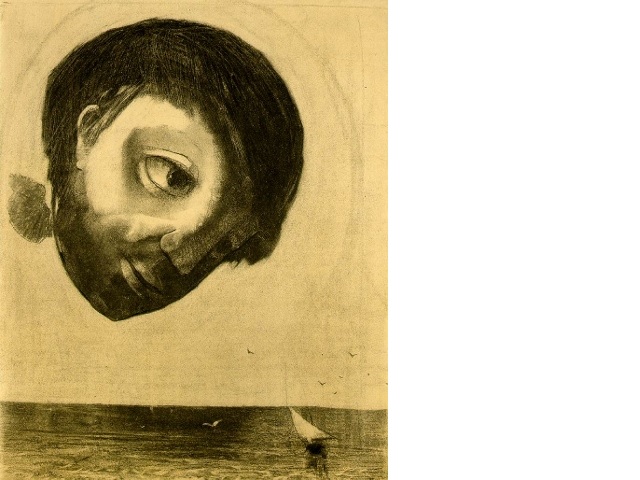What a royal feeling to look into that bag and imagine something new on my tongue on a day like that.

December 10, 2019
On the early December day of my father’s funeral, my cousin Anu arrived from California and handed my mother a brown paper bag. Anu had flown to Michigan in a hurry, and I was impressed that in the midst of making sudden travel arrangements she had thought to pack an armload of persimmons plucked from a tree in her front yard. I was curious because I’d never tasted a persimmon before and I took the package from my mother. What a royal feeling to look into that bag and imagine something new on my tongue on a day like that.
That same day I overheard my mother saying to another cousin as she set down a plate of thin, glistening, orange-red slices, “Do you know the poem ‘Persimmons’ by Li-Young Lee?” My cousins number in the dozens, but none of them read much literature as far as I know. This one was baffled, but given the circumstances that had brought us together, he tried to humor my mother the best he could. I kept quiet and tried not to screw my eyes as I glanced from my cousin to my mother but I was baffled, too. How was it that my mother carries that poem with her, something I must have shown her more than twenty years ago when I first began reading poetry? What does it mean to her? What else, of all that I have fed her off-handedly, does she carry?
◻︎◻︎◻︎
I met Li-Young Lee at the age of seventeen on another December night many years ago when I went with friends to a reading at a local public library. I didn’t know much about contemporary poetry, but Lee’s volume, Rose, a book of rice, rain, flowers, Donna whose belly is white as the moon, fruit, and a tender, dead father, had taken me by the hair. It was a book of communion, longing, and loss—of an immigrant family eating together and a son left eating alone. I don’t know why we did it, but after the reading we looked at Lee’s pale, sober face and asked if we could walk him back to his hotel. Over his handler’s objection he agreed. In the lobby of a Holiday Inn that night we sat and drank chamomile tea before he said goodnight and retired to his room. My friends and I walked out into the dark in a kind of delirium. I had never met a poet before and was stunned by the discovery of this particular way of being human. He must have been in his 30s then, but from the vantage point of my late adolescence he struck me as a wise and sorrowful old man. What occurs to me now is simply the fact of a moment shared rather than sequestered—that he chose to drink his tea with us that night instead of alone in his room.
◻︎◻︎◻︎
My father labored towards his death for nearly twenty-four hours after we turned off his ventilator. There were only a few of us by his side in the living room when he stopped breathing, but the alerts went out and within an hour of his death nearly fifty people had gathered in my parents’ home. They stayed for dinner that night and came back again the next night and the next, and for the week that followed the house was filled with the festive charge of shared loss. Then, before all of my relatives had even arrived, I left, needing to flee before life ebbed back into ordinary grief.
When I returned home to New York three days after the funeral, I brought one remaining persimmon with me. But in the days that followed, I did not eat it. It gleamed like a jewel on my black granite counter. I thought of my cousin Anu’s persimmon tree—the idea of a gift from anyone’s tree filled me with awe and nostalgia. Once, my aunt in Los Angeles sent three yellow guavas to me in December. Two I ate right away and one I saved, so that I could be astonished by the fact of eating three ripe guavas in winter, two on the December side, and then turning a corner, one on the January side. Once, I listened to another aunt tell a customs officer at JFK airport not to throw out the mango pickle that we had packed in our luggage. “Listen,” she said, speaking in Telugu, “These mangos are from our own yard.” In my immigrant mind, just as the mangos were from India, the guavas from Los Angeles were from India, the persimmons from northern California—though I’ve never seen a persimmon in India—were from India. The gift of fruit from someone’s own tree is always in my imagination a gift from India, where fruit was an offering and the weight of sweetness, which was sometimes sorrow, was shared.
In my apartment in New York, the days shortened towards their limit, but the persimmon remained bright on my counter. Finally, on the winter solstice, I admitted to myself, This persimmon stands for more than itself, but it’s not a poem. I decided to eat it. On that deepest night, eating alone, I took in the sun.
◻︎◻︎◻︎
From “Persimmons” by Li-Young Lee:
My mother said every persimmon has a sun
inside, something golden, glowing,
warm as my face.
Once, in the cellar, I found two wrapped in newspaper,
forgotten and not yet ripe.
I took them and set both on my bedroom windowsill,
where each morning a cardinal
sang, The sun, the sun.
Finally understanding
he was going blind,
my father sat up all one night
waiting for a song, a ghost.
I gave him the persimmons,
swelled, heavy as sadness,
and sweet as love.
Li-Young Lee’s “Persimmons” from the collection Rose. Copyright © 1986 by Li-Young Lee.



